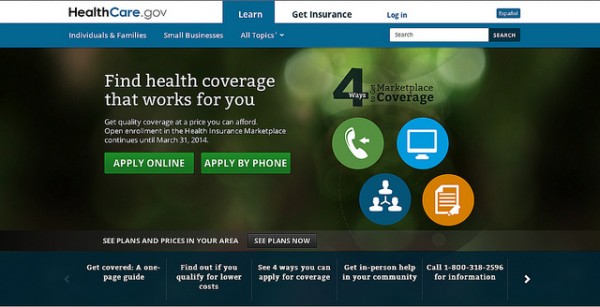Associate Professor Discusses Obamacare
October 30, 2013

On Oct. 1, The Affordable Care Act, also known as Obamacare, was officially made available for open enrollment to Americans. The Observer spoke to Associate Professor of Political Science Bruce Berg, who further explained Obamacare and what it means for students on at Fordham College at Lincoln Center (FCLC).
The Observer: First off, what is Obamacare, and why was it introduced?
Bruce Berg: [Obamacare] is a federal policy that offers health insurance to millions of people who formerly could not get health insurance or could not get it inexpensively. Originally, people could not get health insurance because it was expensive. In some cases, especially with folks with preexisting conditions, [health insurance] was simply unavailable. For instance, if you got someone with a chronic condition that needs constant attention, they may find that no insurance company wants to cover them. Some states have high risks pools that cover these kinds of people, but not all states do; it may be that some of those states who cover these people cannot afford it. This is because people are either unemployed, employed in low-wage jobs, part-time jobs that don’t offer health insurance or simply too poor—a good chunk of the country goes without health insurance. It is the goal of Obamacare, or the Affordable Care Act, to cover most Americans, but not all—it promises to insure many who haven’t been insured.
Observer: What are some of the features of Obamacare?
B.B.: Since [Obamacare] hasn’t been entirely unrolled yet, there is a lot in the legislation that we can talk about. Whether [these legislations] are going to happen or not, nobody really knows. There is a whole lot of legislation [in Obamacare] that hopes to bring down the costs of healthcare—this is going to take a good five, six, ten years in order to get a realistic picture to whether this very complicated program is working or not.
Observer: Will Obamacare affect young people? How does it affect Fordham students?
B.B.: Before the Affordable Care Act, either at age 23 or when you graduated from college, your parents’ employer automatically kicked you off their plan. In most cases, people in their 20s were uninsured. Now, [employers] are required, because of the new law, to cover you [on your parents’ plan] until age 26. What the [Fordham student body] ought to know is that immediately after the legislation was passed, a regulation went into effect that everybody, every student, every individual below the age of 26 is able to stay under their parents health insurance plan. That went into effect two years ago. All Fordham students who have parent-covered insurance now have security that they can be covered. By far, this is the biggest benefit of the Affordable Care Act.
Observer: Therefore, as Fordham students, does this means we do not have to act on health insurance because we are covered under our parents’ health insurance?
B.B.: If you are under the age of 26, there is no immediate action that you need to take. That is a big deal. Even though it is an extra three years, employers do not have a problem with this because you guys are a healthy group.
Observer: How does insuring more young people affect the coverage of health insurance in general?
B.B.: The principal of insurance is to create a pool of people so large and diverse that those who are healthy will help pay for those who are ill. Insurance is all about creating a pool of people of varying degrees of risk, such that there will be redistributing. The more people that are insured, the more this program is going to work. The Obama administration is trying to get healthy people in the age range of 20 and 30 to enroll because that is going to make the plan solid. [In regards to insurance], the healthy pay for the less healthy—insurance is all about risks.












